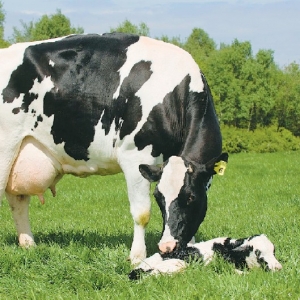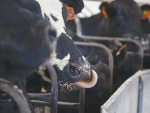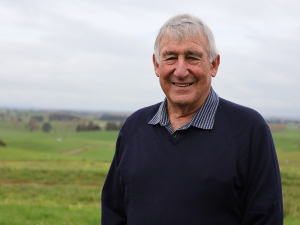The reminder comes from DairyNZ subsidiary NZ Animal Evaluation Ltd (NZAEL).
Manager Dr Jeremy Bryant says ensuring heifer replacements are correctly matched to their mothers will help to boost profit through genetic improvements.
"In the demanding, time-stretched environment of spring calving, it could be easy to dismiss the importance of correctly matching calves to their mums," says Bryant.
On average 23% of calves had incorrect sires matched a 2011 Abacus Bio Ltd study of 97 farms showed.
It pays to take extra care, says Jeremy. "In a 1000 cow herd, with 50% parentage errors, the average cost of lost production potential in replacement heifers is around $1000 a year and compounds over time," he says.
"Greater risk of inbreeding or unintended mating of cows and sires that carry noted genes with health implications, also arises."
In a recent edition of Ashburton Trading Society's (ATS) bi-monthly magazine, a number of farmers relayed how they matched calves to their mother.
Clandeboye Jersey breeder and owner of Lynbrook Jerseys, Steve Ireland, maintains there is no real rocket science behind keeping good records on mother-daughter matching through calving time. The former NZAEL director has recorded 100% accuracy on the calving matches in his 550 head herd.
"I tend to pretty much take responsibility for checking and recording over calving myself, I think you really need one person overseeing it." He admits to still being a committed user of the yellow notebook system, recording every birth and mother's ID, and updating his MINDA records every couple of days.
Ireland will check his calving mob up to six times a day, and inserts a brass tag in replacement heifer calves in the paddock. One set of tags is kept solely on one 'calving bike' in a convenient bum bag, along with the notebook to ensure consistency.
At the end of the day, if it appears the weather may close in, cows looking like they will calve are separated out into another break to reduce the risk of mis-mothering.
Meanwhile, Rakaia farmers Hayden and Jessie Dorman also have some well-tried and simple methods for ensuring accurate calving data. The couple are focusing on breeding cows capable of coping and producing in a high input farming system. The couple work their breeding goals to the simple ethos 'every cow counts'.
To minimise mis-matching over calving, only their most experienced staff member pairs off calves and mothers for tagging, and the calving mob is checked frequently and data updated every day.
"We also spend time getting our staff to understand why correct identification is important, and what it can mean for the quality of the herd in future."
For more information on NZAEL, which is responsible for the maintenance, on-going development and delivery of BW and associated breeding values for dairy sires, visit www.nzael.co.nz.











